
The United Nations Organization Stabilization Mission in the Democratic Republic of the Congo or MONUSCO, an acronym based on its French name Mission de l'Organisation des Nations Unies pour la stabilisation en République démocratique du Congo, is a United Nations peacekeeping force in the Democratic Republic of the Congo (DRC) which was established by the United Nations Security Council in resolutions 1279 (1999) and 1291 (2000) to monitor the peace process of the Second Congo War, though much of its focus subsequently turned to the Ituri conflict, the Kivu conflict and the Dongo conflict. The mission was known as the United Nations Mission in the Democratic Republic of Congo or MONUC, an acronym of its French name Mission de l'Organisation des Nations Unies en République démocratique du Congo, until 2010.
The Lusaka Ceasefire Agreement attempted to end the Second Congo War through a ceasefire, release of prisoners of war, and the deployment of an international peacekeeping force under the auspices of the United Nations. The heads of state of Angola, the Democratic Republic of the Congo, Namibia, Rwanda, Uganda, Zambia, and Zimbabwe signed the agreement in Lusaka, Zambia on July 10, 1999.

United Nations Security Council resolution 1234, adopted unanimously on 9 April 1999, after expressing concern at the situation in the Democratic Republic of the Congo, the Council demanded an immediate halt to hostilities in the region, a withdrawal of foreign forces and the re-establishment of the government's authority.
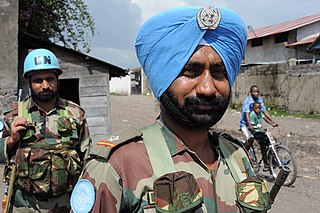
United Nations Security Council Resolution 1925, adopted unanimously on May 28, 2010, after reaffirming previous resolutions on the situation in the Democratic Republic of the Congo, the Council extended the mandate of the United Nations Mission in the Democratic Republic of Congo (MONUC) until June 30, 2010, authorised a withdrawal of 2,000 troops and decided that from July 1, 2010, MONUC would be known as the United Nations Organization Stabilization Mission in the Democratic Republic of the Congo (MONUSCO) with a mandate until June 30, 2011.

United Nations Security Council resolution 1279, adopted unanimously on 30 November 1999, after recalling resolutions 1234 (1999), 1258 (1999) and 1273 (1999) on situation in the Democratic Republic of the Congo, the council established the United Nations Mission in the Democratic Republic of Congo (MONUC) for an initial period until 1 March 2000.
United Nations Security Council resolution 1291, adopted unanimously on 24 February 2000, after recalling resolutions 1234 (1999), 1258 (1999), 1273 (1999) and 1279 (1999) on situation in the Democratic Republic of the Congo, the Council expanded the United Nations Mission in the Democratic Republic of Congo (MONUC) to include additional tasks and extended its mandate until 31 August 2000.

United Nations Security Council resolution 1304, adopted unanimously on 16 June 2000, after recalling resolutions 1234 (1999), 1258 (1999), 1273 (1999), 1279 (1999), 1291 (1999) and 1296 (2000) on situation in the Democratic Republic of the Congo, the Council demanded the immediate withdrawal of Ugandan, Rwandan, Congolese opposition and other armed groups from Kisangani in the Democratic Republic of the Congo.

United Nations Security Council resolution 1316, adopted unanimously on 23 August 2000, after recalling resolutions 1273 (1999), 1291 (2000) and 1304 (2000) on situation in the Democratic Republic of the Congo, the Council extended the mandate of the United Nations Mission in the Democratic Republic of Congo (MONUC) until 15 October 2000.
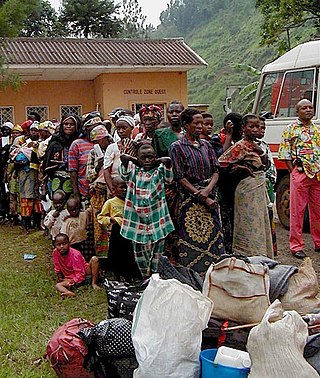
United Nations Security Council resolution 1332, adopted unanimously on 14 December 2000, after recalling resolutions 1234 (1999), 1258 (1999), 1265 (1999), 1273 (1999), 1279 (1999), 1291 (2000), 1296 (2000), 1304 (2000) and 1323 (2000) on situation in the Democratic Republic of the Congo, the Council extended the mandate of the United Nations Mission in the Democratic Republic of Congo (MONUC) until 15 June 2001.
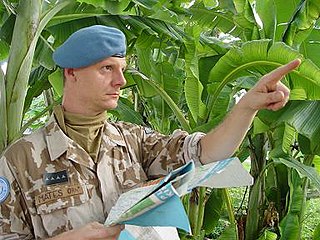
United Nations Security Council resolution 1355, adopted unanimously on 15 June 2001, after recalling resolutions 1234 (1999), 1258 (1999), 1265 (1999), 1273 (1999), 1279 (1999), 1291 (2000), 1296 (2000), 1304 (2000), 1323 (2000), 1332 (2000) and 1341 (2001) on situation in the Democratic Republic of the Congo, the Council extended the mandate of the United Nations Mission in the Democratic Republic of Congo (MONUC) until 15 June 2002 subject to review every four months.

United Nations Security Council resolution 1376, adopted unanimously on 9 November 2001, after recalling all previous resolutions on situation in the Democratic Republic of the Congo, the Council supported the third phase of the deployment of the United Nations Mission in the Democratic Republic of Congo (MONUC).

United Nations Security Council resolution 1399 was adopted unanimously on 19 March 2002. After recalling all previous resolutions on the situation in the Democratic Republic of the Congo, the Council condemned the capture of the town of Moliro and other activities by the rebel Rally for Congolese Democracy (RCD).
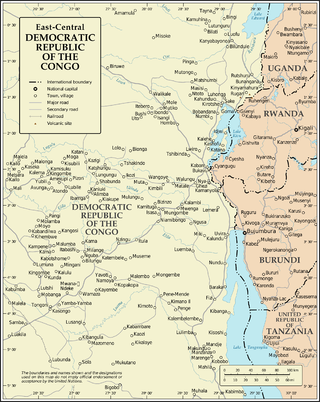
United Nations Security Council Resolution 1417 extended the mandate of the United Nations Organisation Mission in the Democratic Republic of Congo (MONUC) until 30 June 2003. It was unanimously adopted by the United Nations Security Council on 14 June 2002, at its 4,554th meeting. Resolution 1417 was passed after the security council recalled its previous resolutions regarding the matter, particularly Resolution 1355 (2001).

United Nations Security Council resolution 1445 was adopted unanimously on 4 December 2002. After recalling all previous resolutions on situation in the Democratic Republic of the Congo, the council expanded the military component of the United Nations Mission in the Democratic Republic of Congo (MONUC) to a level of 8,700 military personnel–up from 4,250–in two task forces.
United Nations Security Council resolution 1457, adopted unanimously on 24 January 2003, after recalling resolutions 1291 (2000), 1304 (2000), 1323 (2000), 1332 (2000), 1341 (2001), 1355 (2001), 1376 (2001), 1417 (2002) and 1445 (2002) on the situation in the Democratic Republic of the Congo, the council condemned the plundering of natural resources in the country and requested a six-month mandate for a panel investigating the issue.
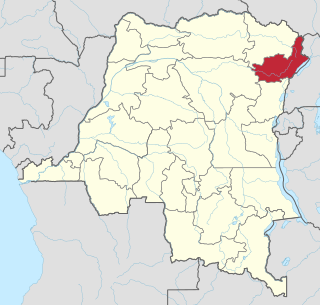
United Nations Security Council resolution 1468, adopted unanimously on 20 March 2003, after recalling previous resolutions on the situation in the Democratic Republic of the Congo, the Council welcomed an agreement on the establishment of a transitional government and requested an increased presence of the United Nations Mission in the Democratic Republic of Congo (MONUC) in the Ituri region in the east of the country amid escalating violence.
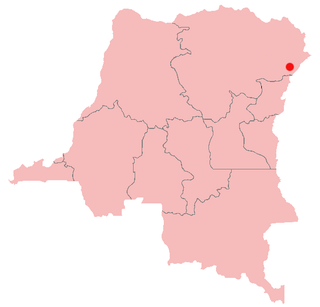
United Nations Security Council Resolution 1484, adopted unanimously on 30 May 2003, after recalling previous resolutions on the situation in the Democratic Republic of the Congo, the Council authorised Operation Artemis in Bunia, the capital of Ituri Province, amid the deteriorating security situation in the area.

United Nations Security Council resolution 1493, adopted unanimously on 28 July 2003, after recalling all resolutions on the situation in the Democratic Republic of the Congo, the council extended the mandate of the United Nations Mission in the Democratic Republic of Congo (MONUC) until 30 July 2004 and raised its troop level from 8,700 to 10,800.

United Nations Security Council Resolution 1592, adopted unanimously on 30 March 2005, after recalling all previous resolutions on the situation in the Democratic Republic of the Congo, including Resolution 1565 (2004), the Council extended the mandate of the United Nations Mission in the Democratic Republic of Congo (MONUC) until 1 October 2005.
The Congolese Rally for Democracy–Goma was a faction of the Congolese Rally for Democracy, a rebel movement based in Goma, Democratic Republic of the Congo (DRC) during the Second Congo War (1998–2003). After the war, some members of the group continued sporadic fighting in North Kivu. The movement also entered mainstream politics, participating in democratic elections with little success.














